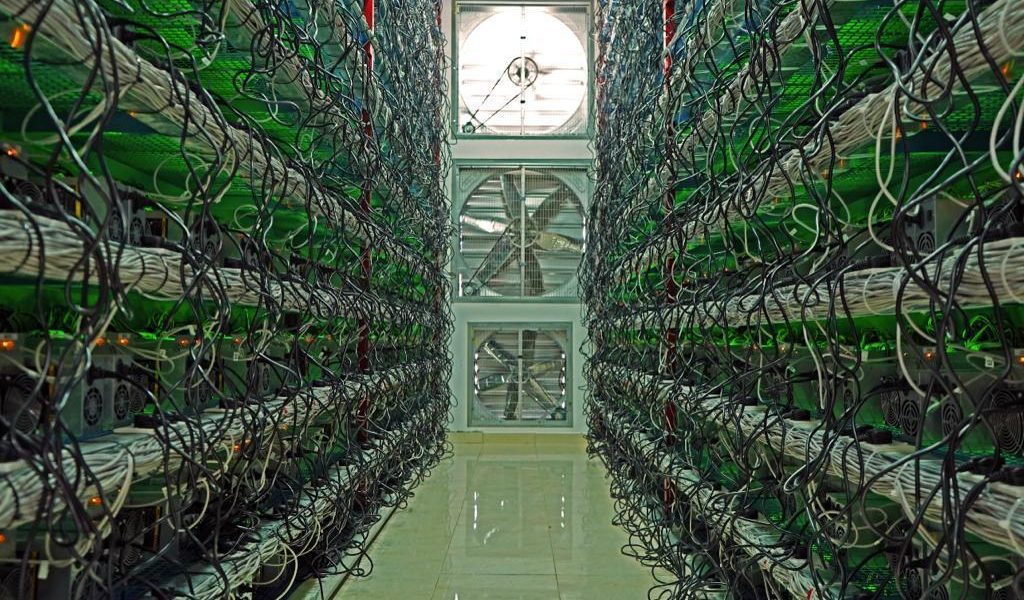- House Democrats wrote to the EPA urging it to investigate proof-of-work mining, but a host of crypto leaders, including Jack Dorsey and Michael Saylor have written a rebuttal.
- According to them, the lawmakers got several things wrong, including their attempt to differentiate Amazon, Google data centers from mining farms.
A week ago, U.S lawmakers took aim at the cryptocurrency mining industry, urging the country’s environmental watchdog to investigate the industry for a number of things from energy to hardware waste. Today, the crypto industry has responded and in a rebuttal by some of the industry’s leaders from Jack Dorsey to Michael Saylor, they outlined the many misrepresentations and half-truths by the lawmakers.
On April 20, two dozen legislators sent a letter to the Environemtal Protection Agency (EPA) urging it to probe crypto mining firms and ensure that they are in full compliance with the Clean Air Act and Clean Water Act.
Led by Rep. Jared Huffman (D-Calif.), the lawmakers wrote:
We have serious concerns regarding reports that cryptocurrency facilities across the country are polluting communities and are having an outsized contribution to greenhouse gas emissions.
In particular, the Congressmen expressed concern with cryptocurrencies that use the proof of work consensus mechanism. This would include Bitcoin (which is the crypto that the majority of mining farms focus on) as well the likes of Ethereum (at least for now), Dogecoin, Litecoin, Monero, Bitcoin Cash and Zcash.
“Further, we ask that the EPA investigate and address any harm these existing PoW facilities are causing communities including, but not limited to, ensuring that electronic waste is responsibly disposed of, and noise pollution is abated. As cryptocurrency continues to gain popularity and demand more mining, we must ensure communities are not left with the toxic burdens associated with this technology,” the legislators wrote.
The crypto community has been up in arms against some of the accusations that the Congressmen made. Most of the discourse has been taking place on social media, at least up until today, May 2.
Bitcoin community to Congress: Get your facts right
In a rebuttal letter, several prominent voices in the crypto community spoke up against the earlier letter and sought to lay out some facts that they believe had been misrepresented by the lawmakers.
Over 50 entities contributed to the rebuttal. They include Microstrategy CEO Michael Saylor, Block Inc’s and former Twitter boss Jack Dorsey, Digital Currency Group COO Mark Murphy, Fidelity Investments senior vice president Tom Jessop, Galaxy Digital’s Mike Novogratz and former White House Communications Director-cum-SkyBridge Capital founder Anthony Scaramucci.
One of the issues the letter sought to put straight is the concept of data centers as used by the legislators. It pointed out that the Congressmen can’t separate data centers such as those owned by Google and Amazon from mining farms. The legislators had presented an argument in which Amazon can keep its computers running but drew the line when those computers were used to mine Bitcoin.
Regulating what data centers allow their computers to do would be a massive shift in policy in the United States.
In more personal responses, the signatories to the letter tore at Congress for singling out the crypto miners who have been abiding by all the laws of the land, including on how to acquire and use electricity.
Darin Feinstein, the co-founder of crypto miner Core Scientific and one of those primarily involved in drafting the letter told one outlet:
They’re confusing the public. The pollution comes from the energy generation source, and all data centers buy electricity off-site, upstream.
He further warned the EPA against overstepping its mandate, noting that if the agency is interested in regulating energy generation, it should adhere to the existing regulations on the federal and state level. Furthermore, most miners are just consumers and don’t produce the electricity themselves.
Nic Carter, the founder of Castle Island Ventures and a prominent crypto voice was also primarily involved in the rebuttal. Speaking to CNBC, he admonished the lawmakers’ proposal that the EPA should police how legal entities use their computers. Be it mining crypto or data mining, companies should have the liberty to engage in any economic activity as long as it’s within the law, he opined.
It would be very unusual for the EPA to regulate the kind of computation that’s occurring within a data center. That’s clearly outside of their remit. It doesn’t make any sense to ask the EPA to care about what kind of computation is being done.
Carter went on to state that the biggest issue is that the lawmakers make the assumption that miners generate electricity, which would put them under the purview of the EPA.
“The letter makes it sound like there’s a bunch of these vertically integrated miners like Stronghold and Greenidge…but that’s a minuscule portion of overall hashrate,” he pointed out.
The rebuttal also debunked a widely-held half-truth that crypto mining produces 30,700 tonnes of electronic waste annually. This criticism was based on a study that has been widely criticized for the assumptions it made, such as the depreciation timeline for the mining rigs.


